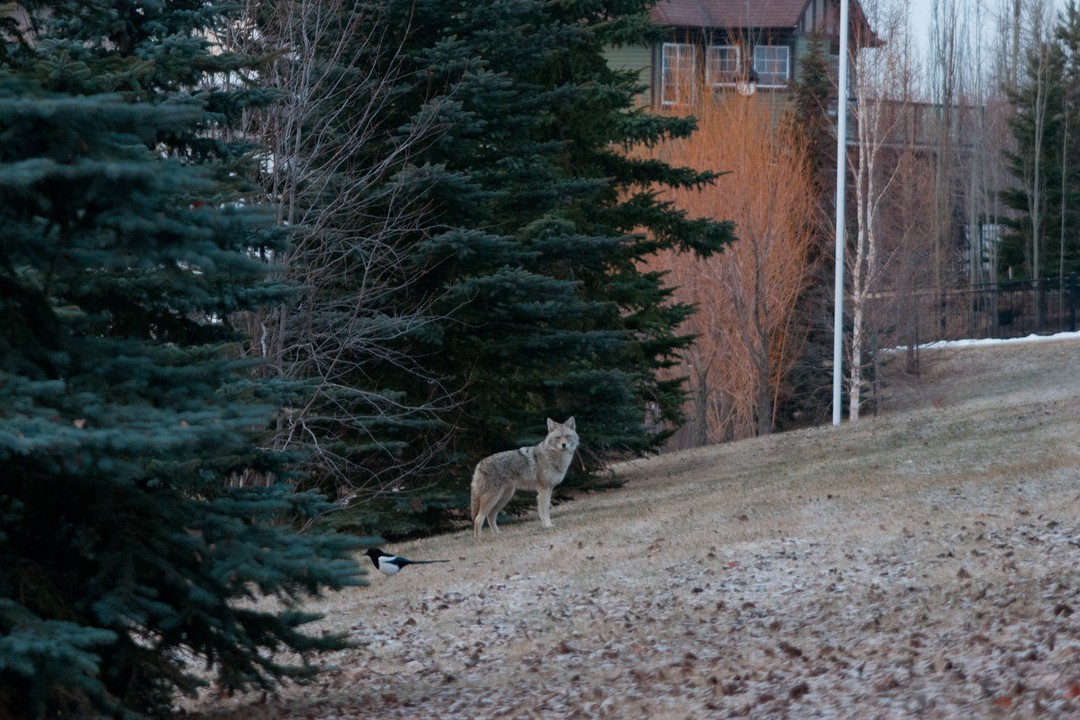
Coyote researcher seeks volunteers to test birdseed theory
By
Nathan Fung
A graduate student at the University of Alberta is looking for volunteers to help her determine whether spilled seeds from bird feeders are attracting coyotes to people's yards, and if so, whether a simple tool could help prevent it.
"Lots of people feed birds and lots of people may not think of birdseed as a coyote attractant in the same way they think of garbage or compost or other things that might come up," said Abby Keller, who is pursuing a master's degree in science.
Keller is part of the Edmonton Urban Coyote Project, a collaboration between the U of A and the City of Edmonton to research both the causes of and the solutions to human-coyote conflict.
Her study will first use remote cameras to look at what animals come into yards to consume fallen seeds from bird feeders, including rodents such as mice and voles. After a month and a half, Keller will install a birdseed catcher, also called a seed hoop, in half of the yards to see if it effectively reduces coyote and prey activity.
At first, Keller wanted to look at coyotes and birdseed in natural areas and parks, but she found bird-feeding wasn't as common in those areas. So she decided to look into the phenomenon in residential yards.
"I thought this would just be really interesting to know a little bit more about maybe a behaviour that's considered odd — eating birdseed," she told Taproot. "It's not something I ever thought of before, and then seeing if we can try to figure out another very accessible management tool that could help reduce human conflict."
Another member of the Edmonton Urban Coyote Project found that about 30% of coyote scat found near homes contained birdseed, which was about as common as finding the remains of small rodents, Keller said.
While coyotes may eat birdseed, it isn't good for them, and it may lead to bad behaviour in the future, Keller said.
"Birdseed doesn't have a lot of protein in it and coyotes don't digest it very well, so it doesn't have a whole lot of value to them in that way," she said. "And on top of that, if they are coming in and eating it, that could lead to them associating people with food. They know they can get this food in the yard, and that can also lead to later conflict."


